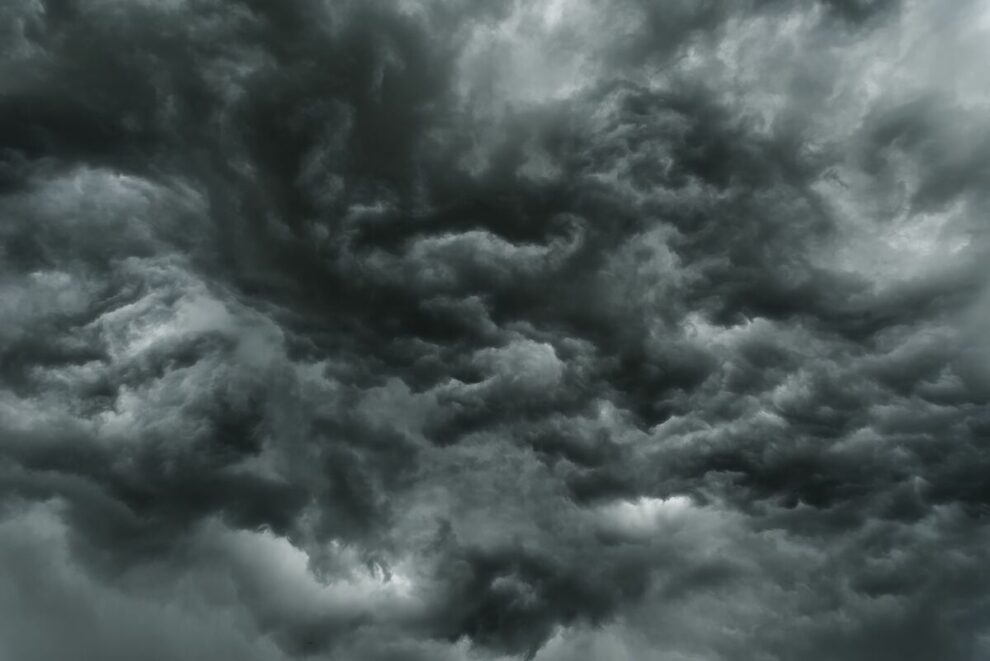The vultures are out in force as Hurricane Laura hammers the Gulf Coast. NBC said it could be “an unprecedented twin strike” if then Tropical Storm Laura also reached hurricane status (sustained winds of at least 75 mph) as TS Marco had done. A Florida meteorologist said on Facebook “it would be the first time in recorded history with two hurricanes in the gulf at the same time.” In USA Today “Opinion contributor” Monica Medina asked “How can Trump ignore climate crisis with twin hurricane-season storms barreling toward us? Climate change is wreaking havoc on people’s lives right now.” CNN said “Unprecedented’ back-to-back hurricanes will target the same state”. Just one small problem. The claim is blatantly false. And climate change does not give a free pass on fact-checking.
NBC actually noted further down in the story that “The shortest time between U.S. landfalls for major storms is 23 hours between Sept. 4 and 5, 1933.” Whereas Marco and Laura were roughly 48 hours apart, and Marco had rather fizzled out before reaching the American Gulf Coast. So unprecedented doesn’t mean to them what it does to, say, the dictionary companies. And for more reasons than just the 1933 incident.
As Anthony Watts retorted, “Dunning, CNN, and Medina are wrong, and badly so. All they had to do is look at the historical records of hurricanes to know this has happened before, and it is nothing new…. Finding this information isn’t difficult, and you don’t need a degree in climatology; the Twin Mobile Hurricanes of 1740 are listed in Wikipedia and in Louisiana Cajun History. There are many other instances of back to back hurricanes hitting near the same location within a few days of each other. Besides the 1740 event, in 1933 and 1959, two tropical storms entered the Gulf of Mexico at the same time. But they were not both hurricanes at those times. Journalists and some meteorologists seem to have this conceit that if it isn’t recorded in the modern-day record of the past 150 years, it didn’t happen. The worse conceit is the fact that they ignore just how few records we have compared to how long nature has been launching hurricanes at the Gulf Coast. Literally this has been going on for millions of years, and somehow because we have the ability to observe, track, and predict hurricanes like never before in history, it’s ‘unprecedented’? How many times has it happened before we were around to observe it? Of course the idea of labeling such things as ‘unprecedented’ goes straight to the heart of climate alarmism, because they are already blaming it on ‘climate change.’”
Watts catalogues other instances of spurious links between storms and climate. And we will too, including the New York Times banging away, telling readers “Why does California have so many wildfires? There are four drivers; climate change figures prominently.” And the Guardian, telling us, again, that it’s our last chance to take decisive action, while a pitch for funding says “68 days to save the Earth …” because if Donald Trump is reelected, the U.S. will pull out of the Paris Accord the next day, November 4.
The two make especially little sense in juxtaposition, because the editorial said “Thirty years ago this week, the population of Earth was given official notification that it faced a threat of unprecedented magnitude” in the form of the first IPCC report but “Three decades later, it is clear that we have recklessly ignored that warning.” Except for signing the Paris Accord that the Guardian thinks would “save the Earth” if implemented. Oh, and politicians having spent the last 30 years talking about it incessantly and untold billions researching and combatting it.
Undeterred, the Grauniad raves on: “consider the heatwave that struck Siberia this year, bringing forest fires, permafrost melting and pest invasions in its wake. Such an event would have been impossible in a world with limited, pre-industrial levels of carbon dioxide in its atmosphere.” Really? No Siberian heatwaves before ppm passed, say, 350? No forest fires? No pest invasions?
Again, one does not have to go back to the period before careful records to refute this nonsense. As we noted last week, Siberian forest fires have been in an unsteady decline for decades. But if you do look at the longer, geological record, of course what you find is that the only thing that’s unprecedented here is the abandon with which supposedly reputable outfits make absurd claims about the weather in pursuit of a polemical agenda.



Perhaps it might help to consider the River Thames, London’s prominence has given a clear record of the historical weather patterns,and the Thames demonstrates it clearly. During the Maunder Minimum the river froze over so thick that they had Ice Fairs in winter for 200 years,the last time it froze over was in 1807,well before industrial timesand during a time when CO2 was low,yet the temperature had clearly been climbing for at least 50 years.
The problem with the new religion is that anyone who disagrees is evil as has been the case in all previous religions. It’s very much comparable because they have a deity Gaia, and high priests as well as religions usual empty headed dupes.
Hurricane activity and landfalls on the USA have been dropping for 100 years.
Climate alarmists need to understand that one swallow does not a summer make.
I hear the same things in Calgary about the "unprecedented" summer storms we receive, to which I answer "You're obviously younger than I am, and not from around here". Oh, and congratulations on another priceless historical anagram. The "Grauniad".......absolutely hilarious.